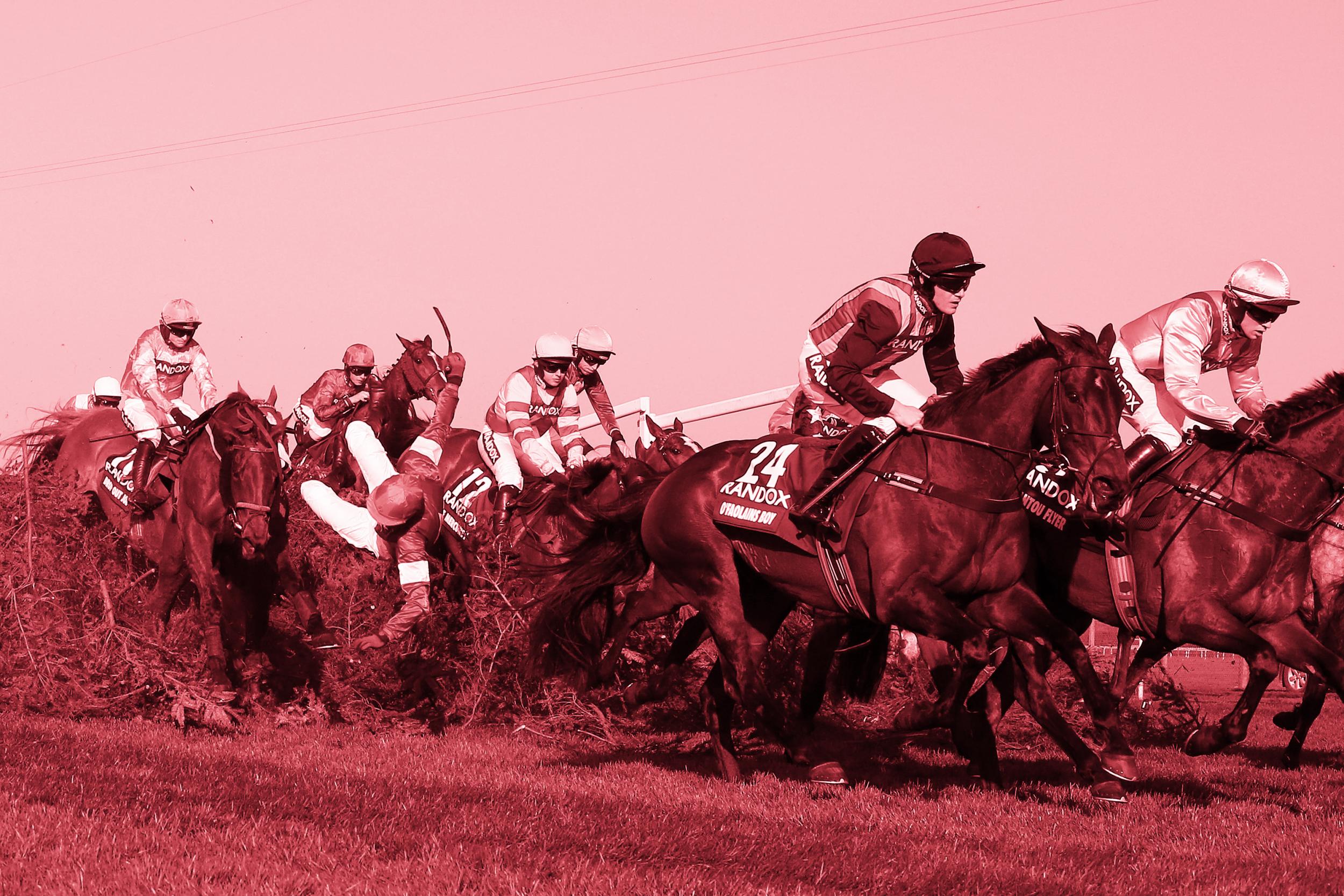Is horse racing really as deadly and cruel as people think?

Your support helps us to tell the story
From reproductive rights to climate change to Big Tech, The Independent is on the ground when the story is developing. Whether it's investigating the financials of Elon Musk's pro-Trump PAC or producing our latest documentary, 'The A Word', which shines a light on the American women fighting for reproductive rights, we know how important it is to parse out the facts from the messaging.
At such a critical moment in US history, we need reporters on the ground. Your donation allows us to keep sending journalists to speak to both sides of the story.
The Independent is trusted by Americans across the entire political spectrum. And unlike many other quality news outlets, we choose not to lock Americans out of our reporting and analysis with paywalls. We believe quality journalism should be available to everyone, paid for by those who can afford it.
Your support makes all the difference.The sport of horse racing will always be scrutinised for the welfare of its competitors, amid claims that it is sometimes fatal.
The facts however speak of a different scenario, where much fewer runners are euthanised as a result of a racing injury than many would first believe.
How many horses die in racing?
According to the sport’s governing body, the British Horse Racing Authority (BHA), the fatality rate is less than 1% of overall runners. 0.19% to be exact – indicative of the rate’s decrease by a third in the last 20 years.
While any death is a tragedy, that percentage comes from the 14,000 horses that are in training, who are likely to run several times a year.
Why are races like the Grand National so infamous?
To some the most exciting race of the sport’s calendar, to other the most notorious - the Grand National is inextricably linked with the fate of its contenders, both equine and human.
The unique test of stamina, jumping and jockeyship not only makes for a spectacle that the world watches but also carries well-known risks for those that take up the challenge.
Forty runners jumping 30 fences over four and a quarter miles is a stern challenge for any animal, let alone those bred to relish it. Idiosyncratic obstacles and occasional warm weather can only intensify the test.
Whatever its reputation, the Grand National has not seen any deaths in the last 5 years. Indeed from the 317 runners who contested a race at this year’s three-day Grand National meeting there were no fatalities.
What changes have been made? Have they worked?
It wasn’t always this way however, with the two years before (2011 and 2012) seeing the deaths of two horses each. The loss of Synchronised, 2012’s Cheltenham Gold Cup winner, was as strong an indication as any that the race needed changing.
Change it did though. After an investment of £1.5 million into safety measures at the course ahead of the 2013 race, significant alterations have brought about the aforementioned improvement.
The structure of the fences was altered to a more forgiving material. The start was moved further from the stands to create a calmer atmosphere. The landing sides of some fences were levelled, including the infamous Becher’s Brook. Stricter qualification criteria were introduced for both horses and jockeys while a wash down area was introduced to ensure finishers were immediately attended to.
Changes that appear to have had a substantial impact.
The sport itself still carries its risks, as does everyday life. Liverpool University found that 62% of ‘traumatic injuries’ suffered by leisure and competition horses occurred when they are turned out in a field. Ridden exercise accounted for 13%.
The reputation that both the Grand National and horse racing as a whole carry appear exaggerated, certainly when compared to the BHA’s statistics. Its scrutiny of itself can continue to provide a stern defence against those who readily dismiss it.
Join our commenting forum
Join thought-provoking conversations, follow other Independent readers and see their replies
Comments